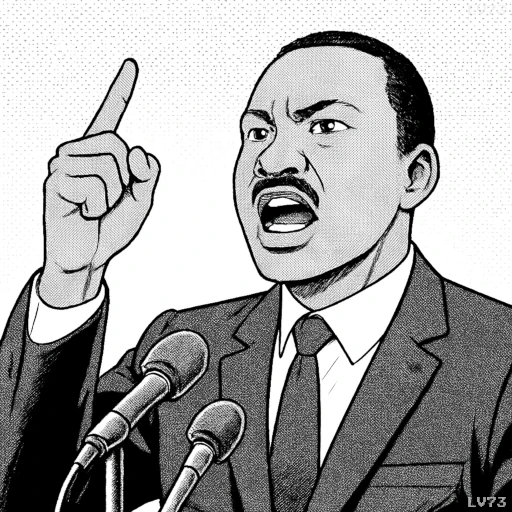“I submit that an individual who breaks a law that conscience tells him is unjust, and who willingly accepts the penalty of imprisonment in order to arouse the conscience of the community over its injustice, is in reality expressing the highest respect for law.”

- January 15, 1929 – April 4, 1968
- African American
- Pastor and civil rights leader
table of contents
Quote
“I submit that an individual who breaks a law that conscience tells him is unjust, and who willingly accepts the penalty of imprisonment in order to arouse the conscience of the community over its injustice, is in reality expressing the highest respect for law.”
Explanation
In this profound statement, King argues that civil disobedience—the act of deliberately breaking an unjust law as a form of protest—can be a powerful expression of respect for justice and the principles that law should embody. He suggests that individuals who refuse to follow laws they believe to be immoral, and who willingly accept the consequences, are not acting against the law in a destructive way. Rather, they are highlighting the need for laws to align with ethics and justice by drawing public attention to the law’s injustice.
King’s philosophy was grounded in his practice of nonviolent resistance during the Civil Rights Movement. He saw that challenging unjust laws through peaceful protest, even if it meant imprisonment, could awaken the public’s moral conscience and encourage legislative change. By accepting the penalties, those practicing civil disobedience demonstrate their commitment to a higher form of justice, reinforcing the idea that laws should serve humanity and reflect ethical values.
Today, King’s insight remains relevant in struggles for social justice and human rights around the world. His message reminds us that there is a difference between legality and morality; just because something is legal does not mean it is just. King’s words inspire us to recognize that individuals who stand up to unjust laws, doing so peacefully and with a willingness to bear the consequences, are urging society to live up to its highest ideals. This perspective encourages us to see civil disobedience as an act of respect for the true purpose of law: to uphold fairness, equality, and the common good.
Would you like to share your impressions or related stories about this quote in the comments section?


